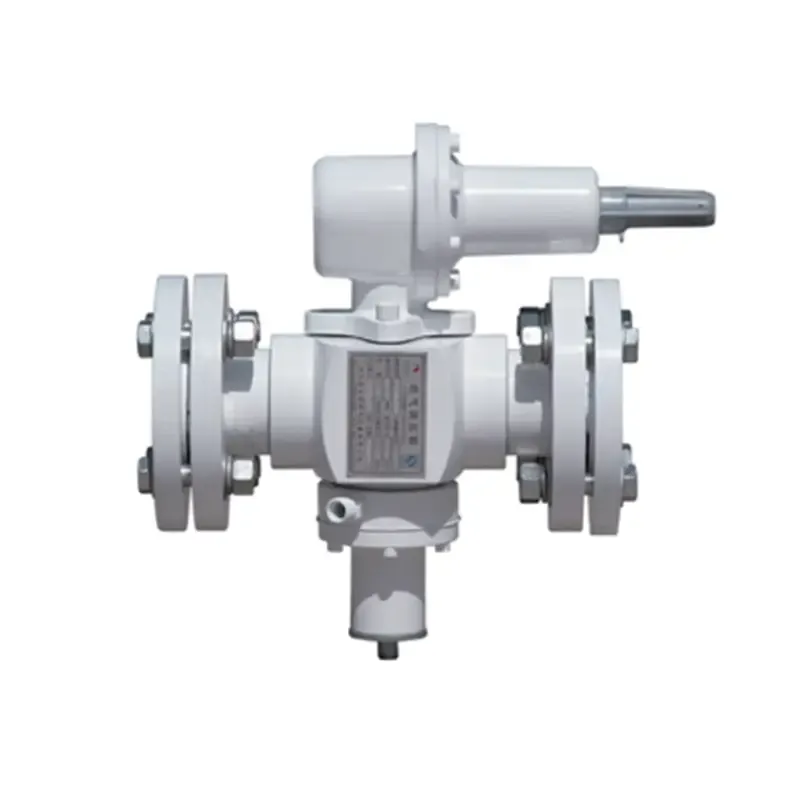
Nov . 12, 2024 08:00
Back to list
صمام كهربائي
Understanding the Electric Valve Features, Applications, and Benefits
Electric valves are essential components in various industrial applications where precise control of fluid flow is required. These automated systems combine the functions of valves and motors, allowing for efficient management of gases and liquids in diverse environments, ranging from water treatment plants to hot steam systems in industrial processes.
What is an Electric Valve?
An electric valve is a type of valve that is operated by an electric actuator. Unlike manual valves that require physical force to turn or lift, electric valves utilize electric signals to open or close the valve, regulating the flow of substances with high precision. Typically, these valves consist of two main parts the valve itself and the actuator. The actuator can either be an on/off type, which simply opens or closes the valve, or a modulating type that allows for variable control of flow.
Key Features of Electric Valves
1. Automation One of the primary benefits of electric valves is their ability to integrate into automated systems. They can be controlled remotely or programmed to operate according to specific parameters or conditions, ensuring consistent and reliable performance.
2. Precision Control Electric valves offer a high degree of control over flow rates, pressure, and temperature. This precision is crucial for processes that require exact measurements and adjustments to maintain operational efficiency and safety.
3. Speed of Operation Electric valves can open and close relatively quickly compared to manual valves, which significantly enhances the responsiveness of a system.
4. Reduced Manual Labor By automating valve operation, the need for manual intervention is minimized. This reduction in manual labor can lead to safer working conditions and increased productivity.
5. Compatibility with Sensors Electric valves can be easily paired with various sensors, enabling them to respond dynamically to changing conditions in a system such as pressure, flow rate, and temperature.
Applications of Electric Valves
.
- Water Treatment In municipal and industrial water treatment facilities, electric valves play a critical role in controlling the flow of water and chemicals used in the purification process.
صمام كهربائي

- Oil and Gas These valves are widely used in the oil and gas industry for controlling flow in pipelines and refineries, where precision and reliability are paramount.
- HVAC Systems In heating, ventilation, and air conditioning systems, electric valves regulate the flow of water and refrigerants, contributing to energy efficiency and climate control.
- Food and Beverage The food industry demands strict hygiene and precise control. Electric valves assist in regulating the flow of ingredients and ensuring safe production processes.
- Chemical Processing Electric valves manage the flow of corrosive chemicals in manufacturing processes, helping maintain safety and operational standards.
Benefits of Using Electric Valves
The use of electric valves presents numerous benefits
- Efficiency Their quick and precise operation minimizes wastage and optimizes resource utilization, contributing to overall efficiency.
- Safety By reducing the need for personnel to manually operate valves in hazardous environments, electric valves enhance workplace safety.
- Maintenance Reduction Because of their durable design and reduced need for human operation, electric valves typically require less maintenance than traditional manual systems.
- Cost-Effectiveness While the initial investment for electric valves may be higher, the operational efficiency, reduced labor costs, and maintenance savings often lead to overall cost reductions in the long run.
Conclusion
Electric valves have become indispensable components in modern industrial processes. Their ability to provide precise control, enhance safety, and streamline operations makes them crucial in a wide range of applications. As industries continue to evolve towards automation and digitalization, the importance of electric valves will only grow, paving the way for more efficient and effective systems across various sectors. Understanding their features, advantages, and potential applications can help businesses make informed decisions regarding their fluid control needs, ultimately leading to better performance and reliability in operations.
Next:
Latest news
-
Safety Valve Spring-Loaded Design Overpressure ProtectionNewsJul.25,2025
-
Precision Voltage Regulator AC5 Accuracy Grade PerformanceNewsJul.25,2025
-
Natural Gas Pressure Regulating Skid Industrial Pipeline ApplicationsNewsJul.25,2025
-
Natural Gas Filter Stainless Steel Mesh Element DesignNewsJul.25,2025
-
Gas Pressure Regulator Valve Direct-Acting Spring-Loaded DesignNewsJul.25,2025
-
Decompression Equipment Multi-Stage Heat Exchange System DesignNewsJul.25,2025

